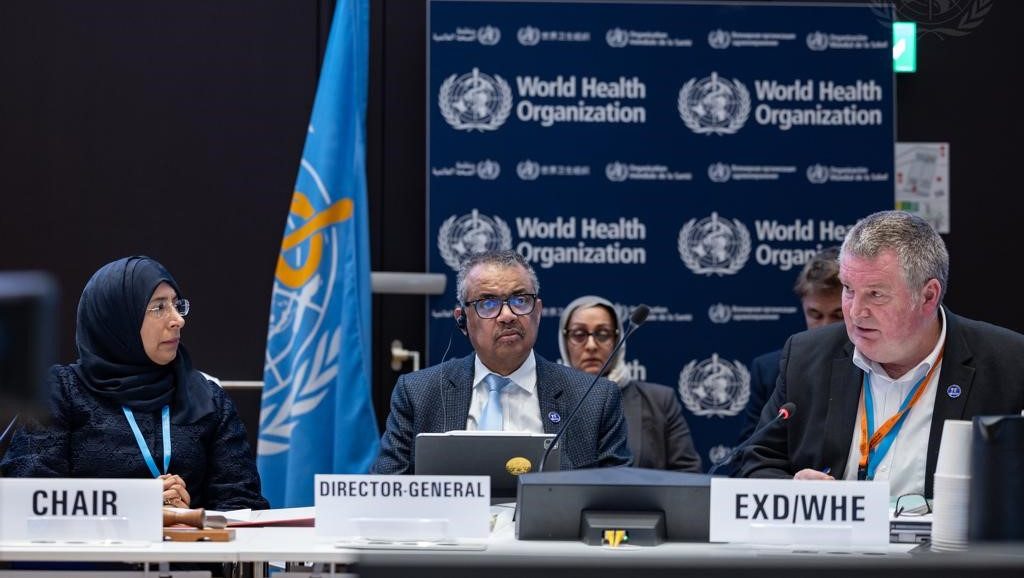The Executive Board holds an annual meeting in January, where members agree upon the agenda for the forthcoming World Health Assembly and the resolutions to be considered by the Assembly.
The 154th session of the World Health Organisation (WHO) Executive Board was chaired by Qatar, where key decisions and resolutions have been adopted that aim to address various global health challenges.
The session, held in Geneva from 25 – 27 January, concluded on Saturday with notable outcomes under the leadership of Qatar’s Minister of Public Health, Hanan Mohammed Al Kuwari.
Al Kuwari, presiding over the current WHO Board, emphasised the substantial impact of the decisions and procedural resolutions made during the session.
“These decisions and procedural decisions contribute to strengthening WHO’s efforts to reach practical solutions to various health challenges,” she stated at the session’s conclusion.
A highlight of the session was the approval of a procedural decision to present a draft resolution, initiated by Qatar, focusing on promoting health and well-being through sports events.
This resolution is set to be adopted at the 77th World Health Assembly in May 2024.
Garnering widespread support from the European Union countries, the African Union countries, China, Belarus, Malaysia, Panama, and the nations of the Eastern Mediterranean region, the resolution draws inspiration from the legacy of the FIFA World Cup Qatar 2022.
It aims to utilise the event’s experiences to ensure health and safety at major global sporting events, reinforcing the interconnectedness of sport and health as key to global happiness and prosperity.
Additionally, the Board adopted a resolution, co-proposed by Qatar, addressing the health conditions in the occupied Palestinian territories, including East Jerusalem, as part of the Global Health and Peace Initiative (GHPI).
Another significant procedural decision was made to present a draft resolution, also co-proposed by Qatar, focusing on increasing the availability, ethical access, and oversight of the transplantation of human cells, tissues, and organs.
This resolution is also slated for adoption at the upcoming World Health Assembly.
Moreover, a procedure to present a draft resolution on strengthening health emergency preparedness and response was approved, marking a significant stride towards enhancing global health security.
This resolution, too, is set for consideration at the 77th World Health Assembly in May 2024.
The WHO Executive Board is a pivotal entity within the World Health Organization’s governance structure.
Comprising 34 members who are technically qualified in the field of health, the Board is instrumental in shaping global health policies and actions. Each member, designated by a Member State elected to serve by the World Health Assembly, holds a term of three years.
The Executive Board holds an annual meeting in January, where members agree upon the agenda for the forthcoming World Health Assembly and the resolutions to be considered by the Assembly.
Additionally, a shorter meeting occurs in May or June as a follow-up to the Health Assembly. The primary functions of the Executive Board include implementing the decisions and policies of the Health Assembly, advising on various health-related matters, and generally facilitating the work of the Assembly.
The significance of the WHO Executive Board lies in its role as an implementer of the decisions made by the World Health Assembly, the highest decision-making body of WHO.
The Board’s responsibilities include advising on and facilitating the Health Assembly’s work, thus playing a critical role in translating global health policies and decisions into actionable plans and strategies.
The composition of the Board, with members from diverse geographical regions and expertise in health, ensures that a broad range of perspectives and knowledge is brought to the table in addressing global health issues.
